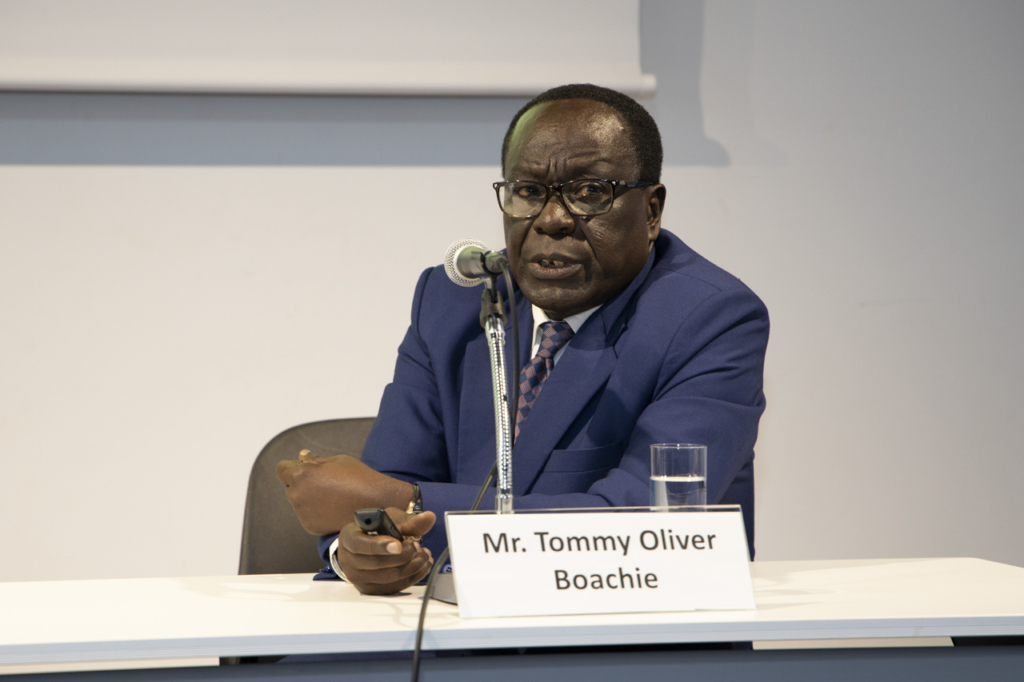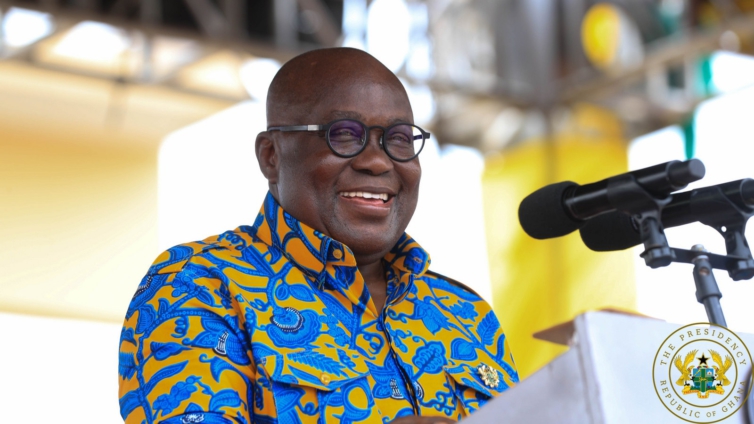The government of Ghana has hailed the extraordinary role that the Science Granting Councils Initiative (SGCI) has played over the last five years in helping transform Science, Technology and Innovation (STI) in the country.
Special Advisor to the Minister of Environment, Science, Technology and Innovation, Oliver Boachie in an interview said Ghana’s participation in SGCI has seen the nation benefit from capacity building initiatives, as well as other support aimed at putting STI at the center of national development.
“We have received training on research management using grant management systems. That is a whole process of issuing calls for proposals, receiving proposals, vetting, allocation of resources, management of the resources, tracking of the output and so on.”
The SGCI is a multi–funder Initiative aimed at strengthening the capacities of 15 Science Granting Councils in Sub-Saharan Africa in order to support research and evidence-based policies that will contribute to economic and social development.
The SGCI works to help nations manage research, monitor outcomes of research initiatives, support knowledge exchange with the private sector, and strengthen partnerships between Science Granting Councils and other science system actors.
The National Research Foundation (NRF) in South Africa, the Swedish International Development Cooperation Agency(Sida), the International Development Research Center (IDRC) in Canada and the Department for International Development - UK are some of the partners funding the SGCI along with the German Research Foundation as an associate organisation.

Mr. Boachie mentioned that Ghana is one of 15 countries in Sub-Saharan Africa benefiting from the initiative with the Ministry of Environment, Science, Technology and Innovation as the national coordinating institution.
As part of efforts to ensure research outputs do not end up on shelves but are commercialized, government has begun processes to establish the Ghana Innovation and Research Commercialisation Center (GIRC - Center).
The Science Granting Councils through organisations like the SCINNOVENT Center and the African Center for Technology Studies has provided Ghana with funding to conduct two separate studies that formed the basis for the establishment of the GIRC - Center.
“The first was to do a study on what kind of research Ghana has done over the last decade and what has been the output of those research in terms of real utilization of the research.
It’s going to form the basis of the database that will catalog all the research that is being done which the GIRC - Center will work with,” Mr. Boachie explained.
"What exists in the country in terms of those who are establishing innovation hubs and what areas they are into? What challenges are they facing, and what support can government give them? So, they paid for these studies to be funded,” he added.
Ghana has also benefited from research works of other countries which are part of the SGCI through collaborations. “One of the things people worry about is people stealing their intellectual property.
Open Science is the protocol to ensure there is sharing of data and research activities and output. These are some of the things that we have benefited from or learnt from our participation in the SGCI,” he explained.
The SGCI recently issued a call for proposal for scientists to apply for funding to undertake research on how to deal with COVID-19, and also funding for journalists to properly tell COVID-19 related stories.
Ghanaian applicants submitted 20 proposals for vetting and 17 have been approved to receive funding for research.
The ministry is confident this will go a long way to strengthen Ghana’s efforts to deal with COVID-19. Two Ghanaian researchers are also receiving $1 million each from the or Tambo Africa Research Chairs Initiative in South Africa which is among the nations funding the SGCI.
“I think the SGCI has been a very supportive Initiative for Ghana and all the other African countries involved. Our situation in Ghana from the start was not the best. Because to be an SGCI member, you have to have a fund set up to support research and innovation which Ghana didn’t have.
But because of the unique role that Ghana plays in academics, they granted us a special dispensation and we are benefitting now,” Mr. Boachie explained.
Ghana has since begun processes to establish the Ghana National Research Fund into which government will allocate money to the tune of at least 1% of Gross Domestic Product (GDP) to fund research and development.
Through the SGCI, Ghana has benefited from knowledge transfer from South Africa in establishing the fund. “On funding, we are using South Africa as a model. South Africa gave Ghana its own bill to set up the system for the fund,” he explained.
One of the seven pillars of the STI transformation initiative in Ghana has been the rolling out of plans to establish Science and Technology Centers to specifically support eight identified Strategic Technology Areas (STAs) where Ghana has competitive advantage.
“The goal is to set up facilities around the country in these areas of competitive advantage for each of the STAs. We can have multiple centers where training is provided for our youth and also includes commercialization and piloting some of the innovations. It will also provide consultancy for those who need such services,” Mr. Boachie said.
When President Akufo-Addo announced the establishment of the centers, he said; “these facilities will be engaged to manufacture tools, equipment and instruments to support key sectors of the economy such as agriculture and industry,
“The goal of this initiative is to accelerate industrialisation, help solve the problem of widespread unemployment in the country and help generate wealth that will stay in the country,” he added.
Mr. Boachie says the idea for the establishment of these centers came from South Africa. “There is the equivalent of what we are trying to set up here in South Africa. They call it technology stations.
Those are located in public research institutions and public universities in South Africa. Because of their track record, they provided experts to work with us to develop our own framework with what we want to do with the STAs,” he explained.
“Now they have seen the bold initiatives that we are rolling out. And they are working closely with us to ensure we succeed in the strategies we are developing and implementing.
And I think as we go along, the collaboration will be even more enhanced. And we are very hopeful that we are going to benefit a lot from the science writing granting councils initiative. We are poised to play our part,” Mr. Boachie added.
“Phase One ended at beginning of this year. They have agreed to fund phase two. It’s hard to tell how much money the funders have put in, but I can tell you a lot of progress has been made… And in Phase Two, they are allocating financial resources for us to strengthen our infrastructure for us to do research and stuff,” he added.
Latest Stories
-
Ahafo RCC and Netcentric Campaigns donate sanitary pads, learning materials to 500 girls to promote menstrual hygiene
21 minutes -
Ghana showcases clean energy progress with a visit to an innovative e-bike manufacturer
28 minutes -
Volta Regional Minister deepens stakeholder engagement in Ketu South, inspects site for modern market project
43 minutes -
Inspired by her late mother, Asante Mampong businesswoman champions grassroots development
44 minutes -
WiLDAF launches empowerment initiative for women agri-food traders along Ghana-Togo border
49 minutes -
Bryan Acheampong camp unfazed by 60 MPs show of support for Dr Bawumia – Aide
52 minutes -
NPP needs a strong party to produce a president, not just a flagbearer – Patrick Boamah
1 hour -
Fitch Solutions revises Ghana’s average inflation in 2025 to 17.2% – Fitch Solutions
1 hour -
Fitch Solutions revises Ghana’s growth rate upwards to 4.9% in 2025
1 hour -
Africa World Airlines expands regional operations to Ouagadougou from July 1
2 hours -
The 60 MPs believe Bawumia is NPP’s best bet for 2028 – Dominic Nitiwul
2 hours -
Frederick Asare parts ways with Asante Kotoko
2 hours -
97% of agencies faced major creative campaign challenges -PMI Survey
2 hours -
Yaw Nsarkoh calls for overhaul of political parties to safeguard Ghana’s democracy
2 hours -
NPP vows to enforce discipline ahead of January 2026 presidential primary
2 hours

